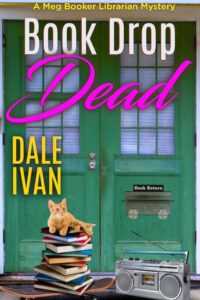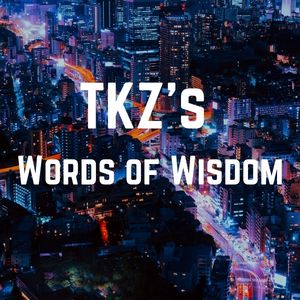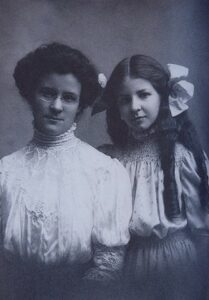
Theme confronts Brody in “Jaws.”
Theme is something writers can wrestle with in their novels, or ignore entirely and just focus on creating a cracking good read. I aim to write engrossing novels, but I also want to deliver a story with a deeper meaning. Becoming aware of a potential theme in a novel I’m working on can help with that.
I’ve been reading screenwriter Jeffrey Schecter’s My Story Can Beat Up Your Story, and his take on theme hit home. He sees the hero asking a “thematic question,” while the confident villain states a “thematic argument.”
One of the examples he provides is from Jaws. Sheriff Brody wonders if he and his family will ever fit in Amity while the great white shark embodies the argument that “an outsider will never be accepted on the island.” The question and the argument do battle in the second half of Act II (or Act III if you’re a four act structure writer), climaxing in the final act in what Schecter calls a “thematic synthesis.” In Jaws, that synthesis is Brody realizing “that he can be accepted into a community only if he is willing to sacrifice all for the community.” Schecter’s laying out the thematic arc for a story was a light bulb moment for yours truly.
With this in mind, today’s Words of Wisdom looks at three posts from the TKZ archives for more insight about theme, courtesy of Kathyrn Lilley, Nancy Cohen and James Scott Bell.

Before there was story structure–before there were even novels—there was theme. A story’s theme is the fundamental and universal idea behind its plot. In King Lear, for example, one of its themes is authority versus chaos.
But to me, a novel’s theme is not merely the abstract principle behind the plot; I believe that you have to bring a story’s theme to life through its characters. Ideally, several of the major characters should portray a variation on the underlying ideas that inform the story. Those characters will reflect the light and depths of your theme, the way the facets of a diamond show off its hidden fire.
In A Killer Workout, the second installment in the Fat City Mysteries, I created a “Mean Girls” theme. I wrote several different characters to illustrate that underlying idea. One character had been victimized by bullies in her youth–another was herself a bully. Still another character had grown up to become a protector of abused young women. Through each of these women’s stories and backgrounds, I explored the ideas of bullying, emotional abuse, and “mean girls” in various ways.
I use my characters to do a “360” exploration of the theme of each of my novels. The secondary characters’ experiences in terms of the theme are usually more intense and extreme than my protagonist’s. They act as “theme foils,” and they also propel her journey through the plot.
Kathryn Lilley—April 20, 2009
Another book club member, an English teacher, had this to say:
“On our tests, students are given a passage to read and then asked to explain the author’s intent. I once asked an author if they knew the theme of their story before they wrote it, and their answer was no. They write the story as it comes. How about you?”
“My intent is to entertain,” I said. “That’s it. I want to give my readers a few hours of escape from their mundane routine and all the bad news out there. My goal is to write a fast-paced story that captures their attention.”
And this is true. I’ve had a writer friend who is a literature professor look at my work and find all sorts of symbolism. Excuse me? I had no idea it was there. Must have been subconscious. I do not set out to sprinkle meaningful symbols related to a theme into my story content. I just write the book.
However, I do know what life lesson my main character has to learn by the end of the story. This is essential for character growth and makes your fictional people seem more real. Usually, I include this emotional realization in my synopsis or plotting notes. It doesn’t always turn out the way I’d planned. Sometimes, this insight evolves differently as I write the story. Or maybe a secondary character has a lesson to learn this time around.
For example, in the book I just finished, I have a couple of paragraphs in my notes under the heading, “What does Marla learn?” Now maybe these lessons could be construed as the book’s theme, but I did not consult these going forward to write the story. To be so analytical would have stopped me dead. Fine arts grad students can pay attention to these details, but I have to write the book as it unfolds. So did I meet the intent that I’d originally set out for my character? Yes, in some respects I covered those points. But do they constitute the main theme of my work? Only my readers will be able to tell me the answer to that question. I can’t see it for myself.
Nancy Cohen—January 28, 2015
I can’t recall who it was, but one novelist said, “A writer should have something on his mind.”
That something is the theme, or meaning, of a story. It is the moral message that comes through at the end. The noted writing teacher William Foster-Harris believed that all worthy stories can be explained as an exercise in “moral arithmetic.” In The Basic Formulas of Fiction he expressed it thus:
Value 1 vs. Value 2 = Outcome
For example, Love vs. Ambition = Love. In other words, the value of love overcomes in the struggle against ambition. If one were writing a tragedy, the outcome would be the opposite, with ambition winning out at the cost of love.
This is true even if you write without a fleeting thought about theme. Your story willhave one, whether you’re conscious of it or not.
Each story has only one primary theme, which can also be stated as “Value X leads to Outcome Y.” James N. Frey says in How to Write a Damn Good Novel: “In fiction, the premise [or theme] is the conclusion of a fictive argument. You cannot prove two different premises in a nonfiction argument; the same is true for a fictive argument. Say the character ends up dead. How did it happen? He ended up dead because he tried to rob the bank. He tried to rob the bank because he needed money. He needed money because he wanted to elope. He wanted to elope because he was madly in love. Therefore, his being madly in love is what got him killed.”
So, “mad love leads to death” is the theme.
It is crucial, however, to realize that theme is played out through the characters in the story. In high school my son was tasked with a book report. He read (at my suggestion) Shane, the classic Western by Jack Schaeffer. One of the questions on his report sheet was to state the theme. He asked me for help, because he had never thought about books this deeply before.
With a little prodding, he was able to see that the homesteaders represented civilization, while the ranchers who hire gunmen represent brutality and lawlessness. Shane, of course, is the enigmatic figure who helps this moral equation become: “Civilization (a community of shared values) can overcome the forces of lawlessness.”
Look to the characters and what they are fighting for, and you will find the theme of your story.
But there is a common problem writers face when they have “something on their minds.” And that is simply that they often begin with a theme and try to force a story into it. This can result in a host of issues, among them:
- Cardboard, one-dimensional characters
- A preachy tone
- Lack of subtlety
- Story clichés
The way to avoid these is to remember: Characters in competition come before theme.
Always.
Develop your characters first—your hero, your villain, your supporting cast—and set them in a story world where their values, aims, and agendas will be in conflict. Create scenes where the struggles is vivid on the page.
Yes, you can have a theme in mind, but make it as wispy as a butterfly wing, and subject to change without notice. If you write truly about the characters, following the wants, needs, and desires, you’ll begin see the theme of your story emerge. At first it may be like the faint glow of a miner’s lamp deep in a dark cave. You may not have full illumination until the end, but it will be there.
So give your characters full, complex humanity, and then a passionate commitment to their own set of values. Even the villain. No, especially the villain. All villains (or antagonists) think they are right, and they are the drivers of the plot.
James Scott Bell—August 13, 2023
***
- Do you think about your novel’s theme?
- What’s your approach to theme? Do you discover it before beginning your novel, or after you’ve drafted it?
- How much does your theme grow out of your characters?
***
This is my final post of 2025. I hope you have a wonderful holiday season filled with light and life. I’ll see you in the new year.





 ker already has her hands full, what with running the busy Fir Grove branch library, helping her flaky actor brother with his latest onstage project, and caring for an orphaned kitten that shows up outside the branch.
ker already has her hands full, what with running the busy Fir Grove branch library, helping her flaky actor brother with his latest onstage project, and caring for an orphaned kitten that shows up outside the branch.







